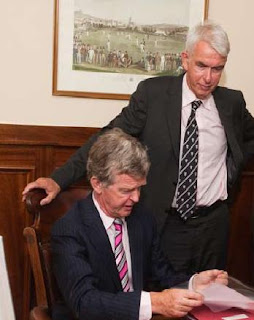Being bullied or harassed in the workplace is a common problem in Ireland today and there are special steps to take so it is prevented and dealt with straight away. It is repeated inappropriate behaviour that makes people uncomfortable and can seriously affect their personal and working lives. Similar to that of dynamics in the playground, bullying can be done by more than one person and can be aimed at either an individual or a group of employees and even employers.
Be it physical, verbal or in any other form,the most common types would be exclusion, intimidation, damaging someones reputation or aggressive actions. If a person is being made feel unreasonably inferior in the workplace, it may be wise to investigate it and see how it can be resolved.
The first steps involve the company proving that it did everything it could to prevent bullying and show that if it happened at all, immediate action was taken.
"The Employment Equality Acts 1998-2008 place an obligation on all employers in Ireland to prevent harassment in the workplace. Harassment including sexual harassment that is based on any of the following 9 grounds – gender, civil status, family status, sexual orientation, religion, age, disability, race or membership of the Traveller community – is a form of discrimination in relation to conditions of employment. Bullying which is linked to one of the discriminatory grounds above comes under the Employment Equality Acts." - excerpt from www.citizensinformation.ie
If you are being bullied or harassed at work and it is not covered by the Employment Equality Acts, you may still have legal rights. Shannons Solicitors have over 30 years experience in employment law and are here to help. For advice and information call Shannons Solicitors on 01-8401780 or e-mail vincent@shannons.ie
Be it physical, verbal or in any other form,the most common types would be exclusion, intimidation, damaging someones reputation or aggressive actions. If a person is being made feel unreasonably inferior in the workplace, it may be wise to investigate it and see how it can be resolved.
The first steps involve the company proving that it did everything it could to prevent bullying and show that if it happened at all, immediate action was taken.
"The Employment Equality Acts 1998-2008 place an obligation on all employers in Ireland to prevent harassment in the workplace. Harassment including sexual harassment that is based on any of the following 9 grounds – gender, civil status, family status, sexual orientation, religion, age, disability, race or membership of the Traveller community – is a form of discrimination in relation to conditions of employment. Bullying which is linked to one of the discriminatory grounds above comes under the Employment Equality Acts." - excerpt from www.citizensinformation.ie
If you are being bullied or harassed at work and it is not covered by the Employment Equality Acts, you may still have legal rights. Shannons Solicitors have over 30 years experience in employment law and are here to help. For advice and information call Shannons Solicitors on 01-8401780 or e-mail vincent@shannons.ie





















